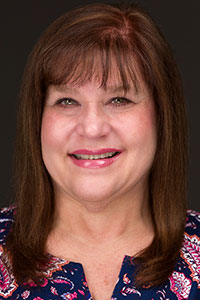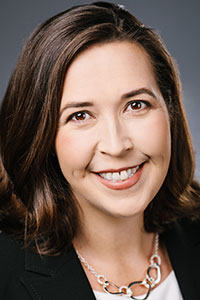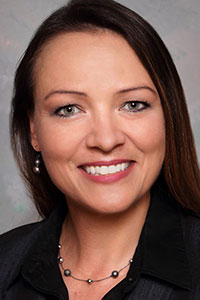
A new Pandemic Compliance Advisor course is designed to help planners ensure best practices for the safest execution of in-person events, It covers, among other topics, working with venues on everything from sanitation to F&B considerations to traffic flow.
Last summer, meeting professionals Mary-Ann Urbanovich, Heather Seasholtz, and Shannon Majewski were all “in some stage of lay-off or furlough,” according to Urbanovich, MS, CMP-HC, meeting manager at HMP Global. Just like many other meeting professionals, the three women — who have since started new jobs or, in the case of Majewski, returned from furlough — were trying to gather as much information as possible about safely hosting events during the COVID-19 pandemic.

Mary-Ann Urbanovich
Urbanovich and Seasholtz, CMP, DES, who is now director of Americas operations for the Drug Information Association, knew each other from working in the Philadelphia market, and were both taking the Health Education Service’s COVID-19 Compliance Officer course, designed to educate crews working on film productions and photo shoots during COVID-19. At the same time, Majewski, CMP, CMM, HMCC, VEMM, education program coordinator (II), department of pathology, Medical College of Wisconsin, reached out to Urbanovich about details on the course through an events industry networking group on Facebook, a moment that she calls “serendipitous.”
“About halfway through the course, I’m like, ‘There’s a lot of parallels to what we do’” as planners, Urbanovich said. She contacted Health Education Services asking if the organization would be willing to partner on a meeting professional–specific course that would help planners sift through the many resources available on COVID-19 compliance. “We just want to get our colleagues, our friends, everybody else working again,” Urbanovich said. The organization agreed, and Urbanovich, Seasholtz, and Majewski rolled up their sleeves and dug in with the help of a professional course writer from Health Education Services.

Heather Seasholtz
“There was just so much information coming at planners from so many different avenues,” Seasholtz said. “So we thought, why can’t we just take all of this and package it together into something that’s digestible and takes the best key learnings, and then creates what the COVID-19 Compliance Officer course is known for — the resources,” she said.
The planners and Health Education Services launched the online, three-hour “Pandemic Compliance Advisor for Meeting Industry Professionals” course in beta in October. The class, which offers three CEUs to CMPs, has taken place every month since. A certificate of completion is awarded upon passing a 25-question exam, at which time participants earn the PCA designation.
“We talk duty of care, we talk about code of conduct, and we talk about some risk management issues,” said Urbanovich, who typically instructs the class while Seasholtz and Majewski moderate the chat and participate in live Q&A at the end of the session. “Then we go through what we see as the solution, which is the Pandemic Compliance Advisor and how that integrates into your program. What happens when you’re pre-planning, what happens when you’re planning, what happens when you’re on site and then what your wrap-up should be and how that all wraps back into proving your due diligence.” Whether participants plan to serve in the PCA role themselves, delegate, or contract coverage, the course is designed to help them ensure best practices for the safest execution of in-person events.
RELATED: Enforcing Mask-Wearing at Events
The course also covers working with venues, GBAC STAR-accredited or otherwise, to understand policies and where responsibilities between planners and venues intersect — everything from sanitation to F&B considerations to traffic flow, which all “require input and coordination on both sides,” Urbanovich said.
The course is regularly updated to cover new topics as the government and the Centers for Disease Control and Prevention (CDC) adapt health and safety standards to reflect the constantly evolving pandemic, giving planners a chance to learn about implementing safety protocols and mechanisms to limit contact and keep attendees physically distant, and other on-site considerations.

Shannon Majewski
As the course instructors add more information to the course, those resources also become available to those who are already certified PCAs. Certified PCAs can also choose to be included in a PCA database made up of those who have successfully passed the exam — “so that way,” Seasholtz said, “as a meeting professional, if I’m coming to Atlanta, I can go to that database, see who is in Atlanta who may be able to come on-site and help support my meeting from the health initiative side.”
Hiring outside help to oversee COVID compliance at the event, such as a certified PCA or outside security team, can be a wise strategy. Attorney Lisa Sommer Devlin advised against placing that responsibility on a volunteer. “You have to decide who’s going to police it,” Sommer Devlin recently told Convene. “I think it’s a bad idea for volunteers to enforce it because some of these requirements are political and difficult.”
Since the class launched, more than 2,000 participants have taken it, entirely as a result of word of mouth. “It is absolutely a grassroots effort,” Majewski said. “There’s been no paid advertising for this course. It’s been people just sharing it because they feel that it’s important.”
Valerie Sumner, principal, VRS Meetings & Events, took the course because she thinks it’s critical to “give our constituency, our members, and our clients the peace of mind that we have some understanding of this,” she told Convene. “It helps people feel more comfortable.”
The next courses will take place on March 26 and April 23 at 1 p.m. ET.
Casey Gale is associate editor at Convene.
WEBINAR ALERT
Please join our panel of industry experts for a discussion about “Pandemic Protocol: Who’s Responsible for Enforcing Event Safety?” Register for the April 8 webinar.
